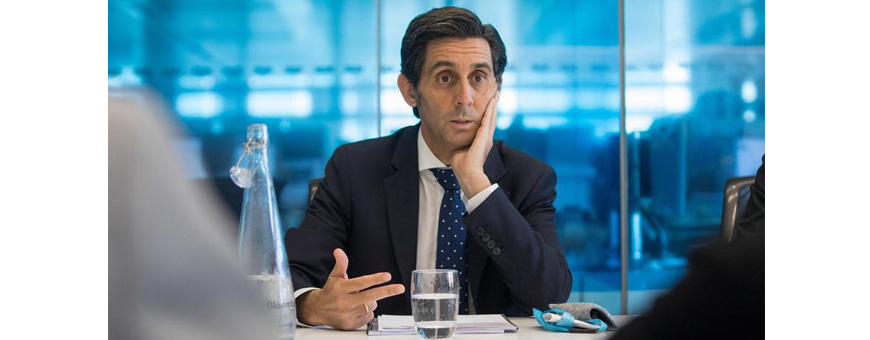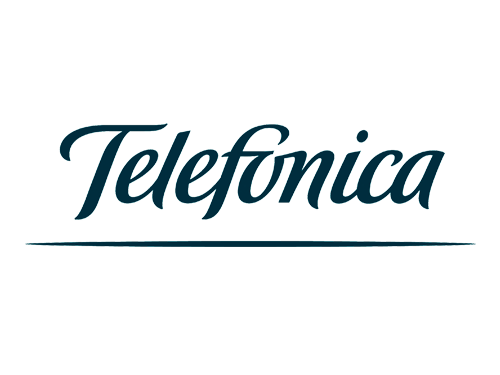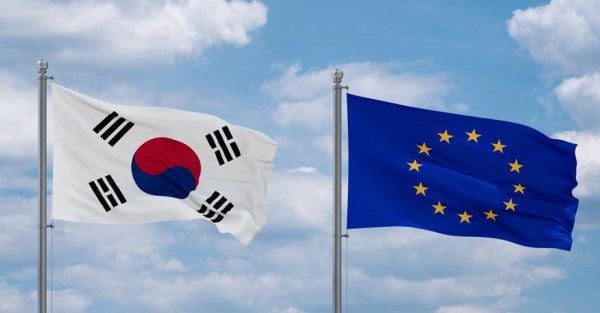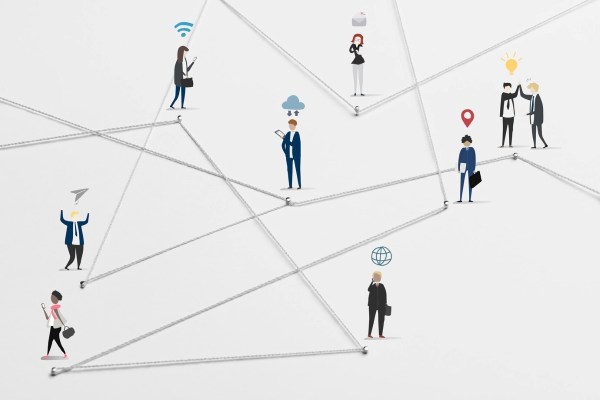RELATED POSTS
“Telefónica affirms its commitment to Germany”
CEO Álvarez-Pallete stands by the German mobile communications subsidiary.
*Interview originally published in Handelsblatt

Foto: Bloomberg/Getty Images
For months, the telecoms industry has been wondering what the Spanish group Telefónica has planned for its German mobile communications subsidiary. In network quality tests, it trails far behind its rivals Telekom and Vodafone, and it also lags behind when it comes to investments in network expansion. This has fuelled rumours that the Spanish group intends to divest Telefónica Deutschland.
But now CEO José María Álvarez-Pallete affirms that he is not considering an exit and does not intend to sell of shares or look for a partner. “Germany is strategically important for us,” he says in the Handelsblatt interview. Telefónica, which first operated in Germany with the O2 brand, also acquired the mobile service provider E-Plus in 2014, making it Germany’s biggest mobile service provider in terms of the number of customers. “If we wanted to sell, we would not have paid EUR 8.5 billion for E-Plus,” says Pallete. He attributes the quality problems to the merging of the two networks. “The reorganisation took us longer than we had expected internally,” he admits. However, the integration is expected to be completed by the end of the year.
Pallete intends for the company to take part in the upcoming auction of mobile communications frequencies for the fast 5G standard, and to do so alone. “We are not planning to team up with anyone else.”
“We want to transform the company”
The head of the Spanish telecoms group Telefónica denies rumours of a sale, defends the sluggish pace of its network expansion in Germany and explains how he intends to position the group globally in the future.
A visit to the head of Telefónica leaves nothing to be desired when it comes to comfort: A waiter in a black suit brings the drinks, and through the window the fountain bubbles in the artificial lake between the office complexes of the telecoms giant. In perfect form, José María Álvarez-Pallete accompanies the Handelsblatt correspondent through the long corridors after the interview, chats about South American dialects and runs his hand over velvet-covered sofas. But when he gets to the lift, he has another message: “You really don’t need to worry about investments in Germany.”
Mr Pallete, Telefónica is the seventh-largest telecoms group in the world. Your predecessor César Alierta’s term of office was characterised by acquisitions all around the globe and he accumulated a lot of debt. What will your term be characterised by?
With over 350 million customers, Telefónica has enormous selling power for mobile phone and network manufacturers. I want us to maintain this strength while also increasingly transforming into a technology company. Telefónica aims to lead the technological revolution we are currently experiencing.
Does that mean that the period of acquisitions is over?
Provided we have the necessary economies of scale, we do not need to keep growing. We now want to consolidate our position and transform the company.
But in Germany you are not making headway with this. Your network is the worst of all.
That’s not true. On the contrary, instead of closing as many base stations as possible and maximising synergies after purchasing E-Plus, we are further densifying the network. Even if two antennas were located close to one another, we kept them there if they mutually improved the usage experience. At the same time, we have upgraded both networks with state-of-the-art technology. Once the integration work is complete, we will have an outstanding network in Germany, especially for cities and suburbs. This mammoth task of network integration was the biggest in the northern hemisphere; only in China there has been comparable projects.
Nonetheless, you regularly come last in network quality tests.
We needed more time for the consolidation than we had thought internally. When we are working on a base station, customers notice this and think that the network is bad. But 80 percent of the work has been completed now. And in the places where we are finished, we have the most efficient network in Germany. We intend to complete all of the work by the end of the year, then everyone will see how strong the network is.
Do you want to offer a good network in urban centres only?
Of course we are also present in rural areas, but we cannot completely keep up with the infrastructure that Deutsche Telekom is expanding there. And most people live in towns or suburbs.
Telekom and Vodafone are both investing more in network expansion than Telefónica. This has led to rumours that you intend to divest your business in Germany.
If we wanted to sell, we would not have bought E-Plus from KPN for EUR 8.5 billion. We have invested more than EUR 25 billion in Germany since 2005. Germany is strategically important for us. It is the largest telecommunications market in Europe, and it is a stable, growing market. Owning the biggest mobile service provider there in terms of customers is extremely valuable. For this reason, we do not intend to sell our business in Germany.
Do you intend to sell shares in the German subsidiary?
We do not plan to do this either. After all, we have twice bought shares in Telefónica Deutschland from KPN, which they had acquired as part of the E-Plus acquisition. I really don’t understand where these rumours are coming from.
The way you describe it, it all sounds as though there is no problem. But Telefónica Deutschland’s share price is lower now than it was before the merger. This means that value has been lost.
The entire European telecoms sector has performed poorly on the stock market. The sale of the KPN shares didn’t help the share price either. But our figures add up: Quarter by quarter, we show how the synergies are developing and what impact this is having on profits. And we are fully on track here.
New mobile communications licences for the fast 5G standard will be auctioned in Germany in 2019. Will Telefónica be bidding?
Yes.
Alone or with a partner?
We are not planning to team up with anyone else.
“We have invested more than EUR 25 billion in Germany since 2005.
The market is strategically important for us”.
What is your relationship with the German CEO Markus Haas like?
I have known him for many years and he is more than a colleague to me. I have a great deal of respect for his work. With his expertise, he also contributes to the business of Telefónica as a whole, and I personally like him very much.
Telefónica has always had the reputation of setting tough specifications for the figures and dictating the strategy to the German CEO. Do you do this?
Telefónica Deutschland is listed on the stock exchange and has its own supervisory board that sets the rules. Our management model is based on the CEO having full responsibility. Markus must ensure that the German subsidiary is more successful as part of the Telefónica Group than it would be alone. With regard to restructuring the network, we use our group’s negotiating position with technology suppliers so that they give Germany priority. But we don’t get involved in day-to-day business.
Vodafone wants to buy the cable group Unity Media in Germany. What does this mean for a pure-play mobile service provider like you?
The market structure is a concern because the transaction generates a duopoly of landline providers. Therefore, this transaction should be subject to strict remedies if it is to be approved ..
You have experience with deals being blocked: On your very first day on the job in April 2016, the European Commission prohibited the sale of O2 in the UK…
Oh yes, that was at exactly eleven o’ clock in the morning!
And now you have had to postpone plans for an IPO in Argentina as a result of the crisis there. So how do you intend to reduce your debts of EUR 43 billion now?
Let me answer that with a comparison: If Deutsche Telekom is permitted to acquire Sprint in the USA and Vodafone can acquire Unity Media in Germany, then both companies will have higher debts than we do – and the market has not penalised them for this.
Does that mean your debt does not matter now?
Of course not, but we have decided to reduce them organically and to sell only if we can get a good price. In 2017, we reduced our debt by ten percent.
How did you manage that?
You say that we skimp on the investments. But over the past seven years we have invested billions worldwide to expand our networks. This is now paying off: Digital revenues are posting double-digit growth and customers today are willing to pay more for 300 megabits per second than for 50. As a result, revenues, profits and cash are increasing, enabling us to reduce our debt.
But you are still just the dumb pipe on which others make money with data.
A lot of people believe that, which is why telecoms groups’ shares are performing so badly. But I see things differently: Our network isn’t stupid, it is extremely intelligent. A digital connection and fibre-optic cables up to the antenna – this is like the body of our company, muscular and with hard bones. A network like this delivers vast quantities of information in real time – like the nervous system. And on top of this we have artificial intelligence – the brain. So then we have an endless number of possibilities to offer new services.
Your own services or just other companies’?
Our own services too. We launched our voice assistant Aura this year. When a customer gets home, he can tell his TV: “Show me the news programme from the start.” And if he appreciates this, he will stay with us. We can consequently reduce churn, which is the most expensive thing for a telecoms group. But an intelligent network is attractive for third parties, too. This is why we have just signed a contract with Netflix and are integrating its television and video content in our TV offer.
You also produce TV series in Spanish. Are you aiming to become the Netflix equivalent for South America?
No, we can’t keep up with their budget. But studies show that customers like local content. For this reason, we want to distinguish ourselves from the competition. And we have made a good start here: The first episode of our series “The Plague” drew a similar number of viewers in Spain as a classic football match between Madrid and Barcelona.
You generate almost 50 percent of your revenue in South America. Isn’t that a big risk?
We have been there since the end of the 80s, these growing markets have made Telefónica what it is today. Of course, the markets there are more volatile. But many of our expenses there are in local currency, so fluctuations do not directly impact our balance sheet. We have also offset the risk with acquisitions in Europe. This is why our business in Germany is so important for us, too.
José María Álvarez-Pallete’s career
Finance expert After studying economics in Madrid and Brussels, the now 54-year-old started his career at an auditing firm in 1987. Following positions at a securities company and as head of Investor Relations at the cement producer Cemex, in 1999 he was hired by Telefónica as CFO.
Corporate career In his various roles at the telecoms group, he has managed South American business and subsequently the European business. He was appointed Chief Operating Officer in 2012, and has held the top position at the group since April 2016. In 2016 the US magazine Forbes named him “Spain’s best CEO”.
You have almost 100 million customers in Brazil. How do you assess the economic situation there?
Brazil has developed impressively. A middle class has emerged, and the country has currency reserves of USD 200 billion as a result of strong exports. Incidentally, we did the same thing there as we are doing now in Germany: making acquisitions and then realising synergies. Brazil is as strategically important as Germany – both markets are far bigger than the Spanish market and we have a leading position in both.
When do you expect the IPO in Argentina to take place?
We never set a date for this – and we are not in any hurry either. We are continuing to grow in Argentina, even in the current crisis.
You are working on a doctoral thesis on big data. What exactly is it about?
Oh yes, I’ve been working on it for four years already but I simply don’t have the time to complete it. But for me, it’s not about getting the degree itself; what I want is to understand the technological revolution from an academic perspective. Science must contribute to defining the values that we need for this new world. Specifically, I am examining the connection between international calls from a country and that country’s balance of payments. I firmly believe that using artificial intelligence we can manage public spending much more precisely and efficiently.
Since you are dealing with the future in so much depth, what will the next big thing be?
Artificial intelligence. Machines can already identify voices and faces better than humans can. With self-learning algorithms, a machine can not only recognise that it is looking at a pizza, but also that it is a vegetarian pizza. Combined with apps and an open developer platform, this will result in much bigger disruptions than the internet or mobile phones. This is fascinating.
Finally, two more questions about the here and now: In Spain, there was a change in the government a week ago. Are you worried about the impact on economic growth?
No. Spain has very sound institutions and a budget for 2018, and it is firmly committed to the euro. Furthermore, the country now has more fibre-optic lines than Germany, Italy, France and the UK combined. We are one of the EU countries that are best prepared for the new world.
The strong broadband expansion was possible thanks to generous regulation…
The regulator did not require Telefónica to make very fast bandwidths available to competitors. So they also made investments. Orange now has more fibre-optic lines in Spain than in France – and this is a company that is partly owned by the French government. Vodafone has installed more broadband in Spain than in the UK and Germany combined. The Spanish model can serve as an example for other countries, including Germany.












